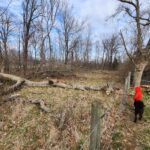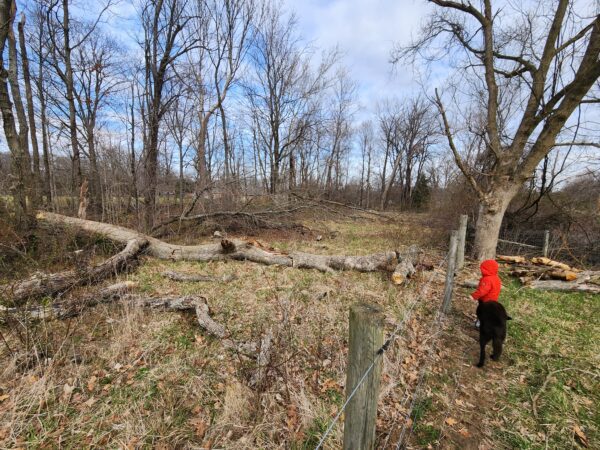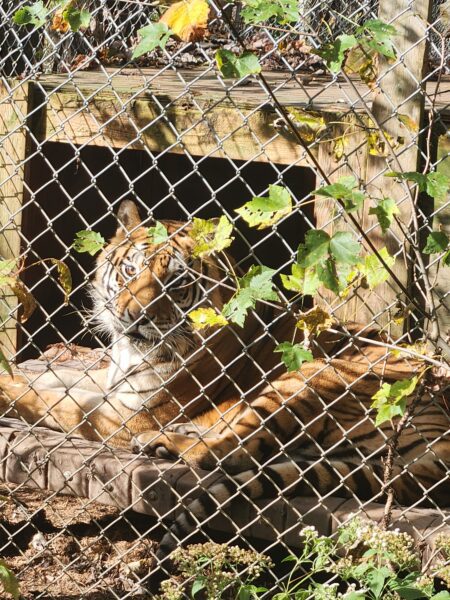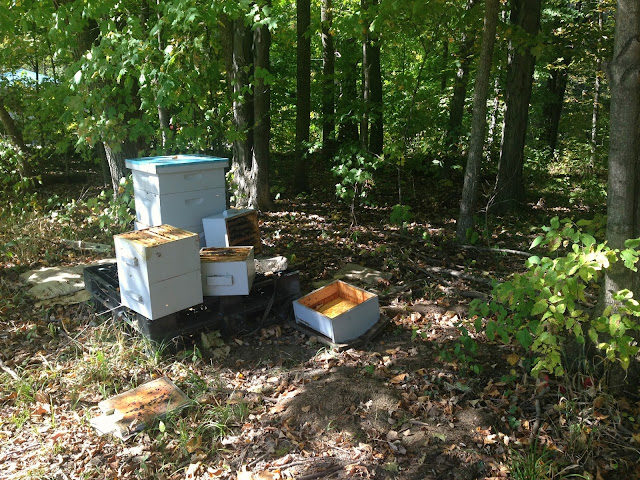 |
| Nothing left… |
Before we got bees, I always assumed they were hearty, indestructible insects that nobody (other than maybe a bear) would want to mess with. I’ve quickly learned they’re quite sensitive and though they possess a temper and a stinger, they’re still delicate and vulnerable. If it’s not an unexpectedly frigid winter, it might be too much moisture, not enough air flow, hive beetles, wax moths, a variety of diseases or in our case this year, wasps.
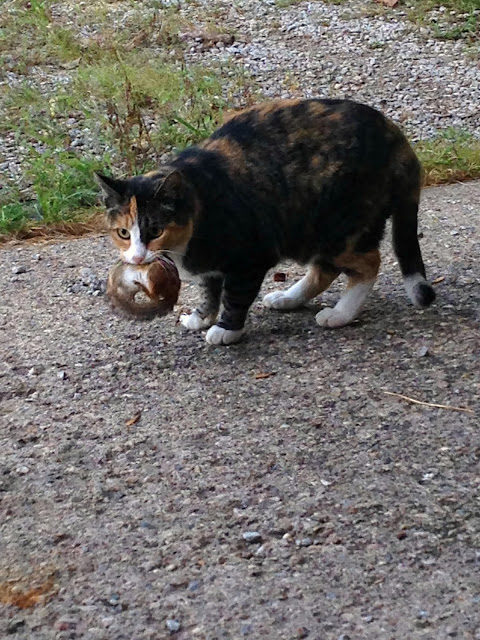 |
| Sorry little chipmunk! Snickers was too fast for you! |
Death is not something new on a homestead. Animals get sick, get old, have accidents or are hunted down by predators. Our cats have caught their fair share of rats, mice, chipmunks, bats, moles and birds (good thing they’re vaccinated and healthy!). Just this summer, after our hen hatched her first babies, the cats mistook the chicks as hors d’oeuvres and ate one. Gulp. At least they don’t waste what they kill. Usually.
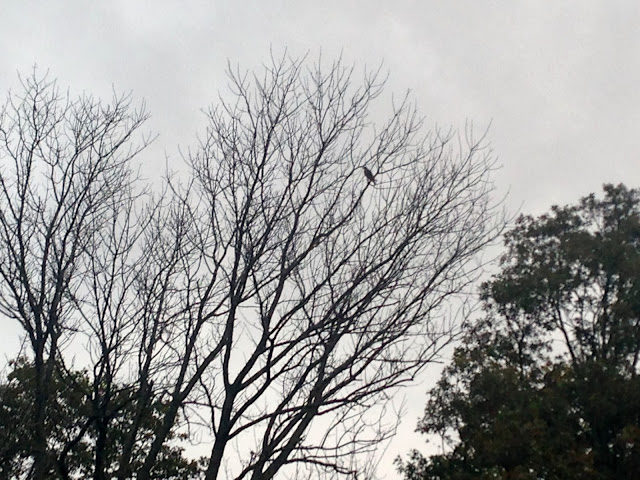 |
The murderer red-tailed hawk sitting in the tree, eyeing the chickens. |
It’s not just babies that are at risk or our very own cats doing the preying either. Just a few weeks ago, we were on our way out the door and wouldn’t be back until after dark, so Jack went to round up the hens and lock them up, only to find a red-tailed hawk munching on one of our bantams. There’s a reason red-tailed hawks are nicknamed murderers chicken hawks.
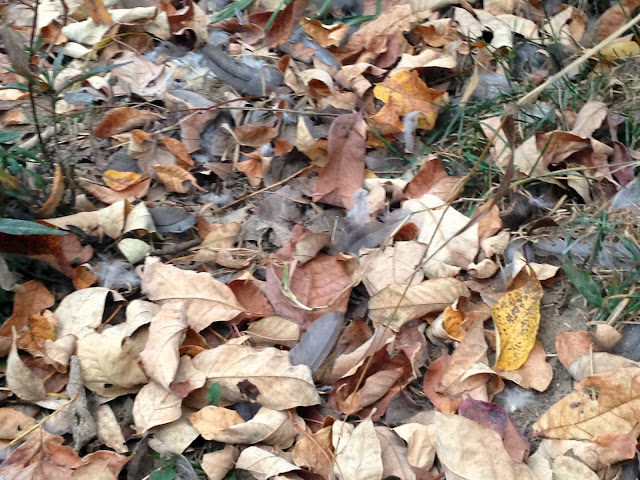 |
| All that’s left of our little gray bantam hen. |
Still, we were hopeful that this would be the year that we were successful at keeping the hives healthy and thriving.
After harvesting pounds and pounds of honey from one of our hives after a few dry years, we were ecstatic to
finally have our hard work pay off. But, shortly after, Jack walked out to check the hives because their activity was nearly nonexistent when we’d seen them heavily active a few days before. To our disappointment and frustration, swarms and swarms of wasps had invaded the hives, stealing honey, killing and cannibalizing the adult bees and starving the babies to death. Within days, two robust hives were decimated to nothing more than empty honeycomb.
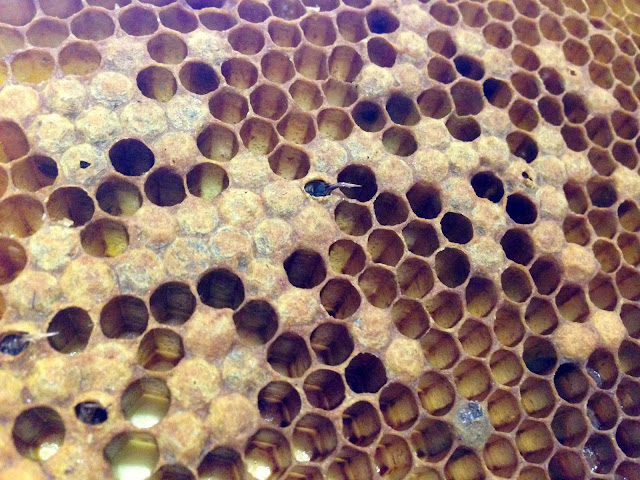 |
| The young bees starved to death after all the workers were killed…their tongues are sticking out, trying to find food. Poor gals! |
After my run in with ground bees last year, I really have nothing nice to say about wasps. I never thought I’d be so enraged by something so small as an insect but their greedy, destructive nature has left me incredibly bitter. Jack thinks the residual honey we left out for the bees to clean off the combs was what attracted the wasps and eventually, they found the hives to invade. Ironically, it was the bees’ prosperity that was their demise and they all died in an epic battle defending the hive.
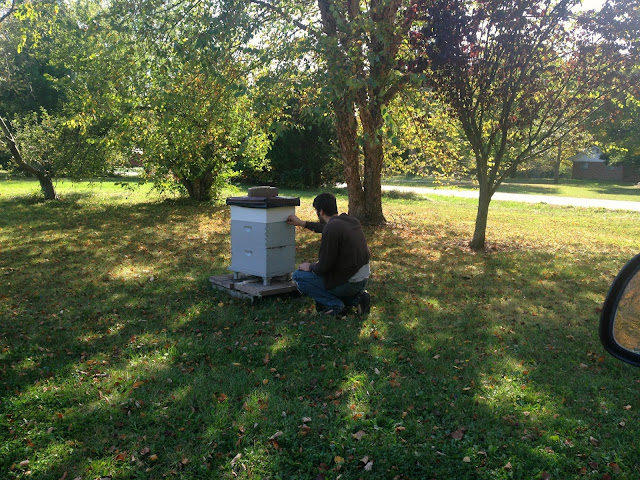 |
| Sealing up the cracks so the bees have less entries to defend. |
Jack was equally as disappointed as I was, if not more so because the bees are mostly his project. As usual, he’s shrugged it off and done the best he can to be positive about it and make the most of the situation. He took out the combs that still are packed with pollen, known as “bee bread” and froze them to kill off any unwelcome parasites. Next year, it will be a welcome source of protein to a new hive.
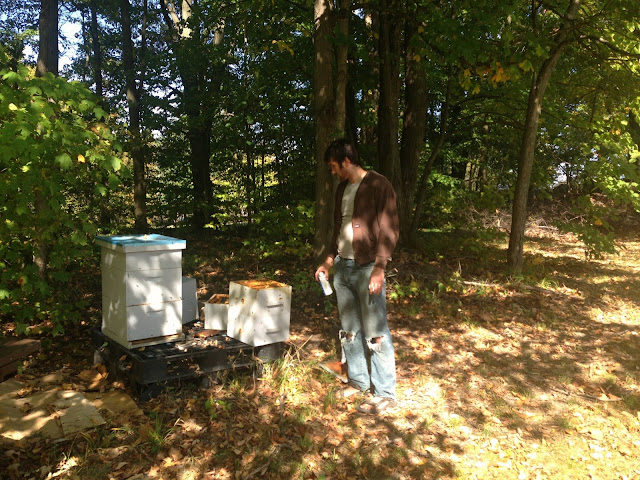 |
| Sad Jack. |
Though death is normal around here, so is life. The hen will hatch more chicks next spring to replace those we lost, we’ll get another hive or two, hope the third will survive the winter and if we’re lucky,
will have another swarm join us. Life’ll win out in the end.












